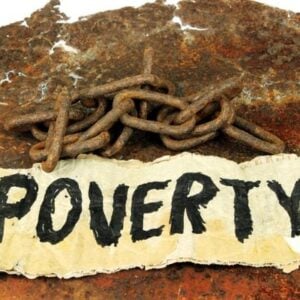Poverty remains a critical challenge in developing countries, which are home to more than 70 percent of the global population, according to Ms. Jie Ping, Deputy Director General of the International Poverty Reduction Center in China (IPRCC). She made these remarks during the opening of a two-week seminar on “Rural Development and Poverty Reduction for Officials from Developing Countries,” held in Beijing from October 14 to 27, 2025. The seminar, organized by the IPRCC and sponsored by China’s Ministry of Commerce, aims to share China’s experiences in eradicating poverty while promoting balanced economic, social, and environmental development.
Ms. Ping highlighted that eradicating poverty has long been a shared global aspiration and is central to achieving sustainable development. Reflecting on China’s journey, she noted that since the 18th National Congress of the Communist Party of China in 2012, the country developed a comprehensive framework of policies and practices that shaped a unique approach to poverty reduction with “Chinese characteristics.” She emphasized China’s landmark achievement in 2021 when it declared the elimination of absolute poverty nationwide, lifting 98.99 million rural residents out of hardship and removing 832 counties and 128,000 villages from the poverty list. This milestone allowed China to meet the UN 2030 Agenda’s poverty reduction target ten years ahead of schedule.
Ms. Ping stressed that eliminating absolute poverty marks a new beginning rather than an endpoint. China launched a five-year transition period to consolidate gains and advance rural revitalization. During this period, over six million people at risk of falling back into poverty were identified and assisted, employment among formerly poor populations remained stable at over 30 million, and income growth in former poverty-stricken counties continued to outpace the national rural average. Additionally, China strengthened guarantees in education, healthcare, housing, and water safety while maintaining steady economic and social progress in previously impoverished regions.
China’s achievements have gained international recognition, and Ms. Ping highlighted the country’s commitment to sharing its experience globally. She cited examples of South-South cooperation, such as infrastructure projects in Uganda and agricultural development in Fiji, which demonstrate how collaborative initiatives can foster shared development and human progress.
Echoing her remarks, Mr. Hatem Mohamed Metwally from Egypt praised China’s success in lifting more than 800 million people out of poverty, calling it one of the most significant achievements in modern human development. He also highlighted Egypt’s efforts to place poverty reduction and sustainable development at the center of its national agenda, supported by civil society engagement and ongoing collaboration with Chinese institutions.
The seminar continues to provide a platform for participants from developing nations to explore China’s poverty reduction models and assess their applicability in different national contexts, fostering knowledge exchange and collaboration for sustainable development.







